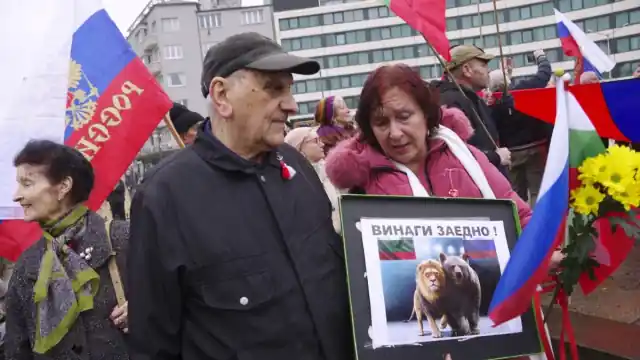
Sofia, Bulgaria – At the recent international conference “Building Resilience Against Foreign Interference and Manipulation of Information,” Ruslan Stefanov, the Program Director of the Center for the Study of Democracy (CSD), brought to light significant insights regarding Bulgaria’s nuanced relationship with Russia.
His remarks underscored the challenges Bulgaria faces in affirming its Euro-Atlantic alignment amid the ongoing conflict in Ukraine.
Stefanov’s address emphasized a critical issue: a substantial portion of the Bulgarian population holds either neutral or favorable views towards Russia.
This sentiment, he noted, complicates Bulgaria’s positioning as a steadfast Euro-Atlantic partner, a role that necessitates clear and decisive actions to safeguard its strategic interests within the alliance.
“Bulgaria’s alignment with Euro-Atlantic values and interests is paramount, especially in the context of the Ukraine conflict,” Stefanov asserted. “However, there is a palpable challenge in articulating why a Ukrainian victory is crucial for Bulgaria’s national and regional security.”
The conference, attended by international policy experts, diplomats, and researchers, served as a platform for discussing the intricate dynamics of foreign interference and the manipulation of information.
Within this context, Bulgaria’s enduring affinity towards Russia emerged as a focal point. Stefanov highlighted that, compared to other European nations, Bulgaria maintains one of the strongest supportive stances towards Russia, a legacy rooted in historical, cultural, and political ties.
“Bulgaria’s favorable disposition towards Russia is not just a historical artifact but a contemporary reality that influences its foreign policy,” Stefanov explained.
“This complicates our efforts to present a unified front within the Euro-Atlantic community, especially when our allies often have conflicting policies regarding Russia.”
The discussions at the conference revealed that Bulgaria’s geopolitical orientation is at a critical juncture. With the ongoing war in Ukraine, the need for Bulgaria to delineate its stance has become increasingly urgent.
Stefanov underscored the strategic importance for Bulgaria to convey why supporting Ukraine’s sovereignty and a victorious resolution to the conflict aligns with its broader Euro-Atlantic goals.
“In the face of regional instability, Bulgaria’s commitment to its Euro-Atlantic partners is essential,” Stefanov stated. “However, this requires a concerted effort to shift public opinion and policy direction towards a more definitive stance against Russian aggression.”
The challenge, as presented by Stefanov, lies in overcoming the deep-seated pro-Russian sentiments that persist among the Bulgarian populace. This task is further complicated by the pervasive influence of Russian media and propaganda, which continue to shape public perception.
“Bulgaria’s path forward must involve robust public diplomacy and strategic communication efforts to counteract Russian influence,” Stefanov suggested. “Only through clear, consistent messaging can we hope to realign public sentiment with our Euro-Atlantic commitments.”
The conference concluded with a consensus on the need for increased vigilance and proactive measures to counter foreign interference.
For Bulgaria, this entails a delicate balancing act: honoring its historical connections with Russia while steadfastly affirming its allegiance to Euro-Atlantic values and objectives.
As Bulgaria navigates this complex landscape, the insights shared at the conference highlight the imperative for a nuanced and strategic approach.
The stakes are high, with Bulgaria’s foreign policy orientation poised to influence not only regional dynamics but also the broader geopolitical equilibrium.
This article was created using automation technology and was thoroughly edited and fact-checked by one of our editorial staff members
